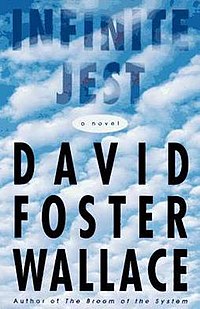

|
A worker reads history Who built the seven gates of Thebes? Labor is prior to, and independent of,
capital. Capital is only the fruit of labor, and could never have
existed if Labor had not first existed. Labor is superior to capital,
and deserves much the higher consideration. |
1 September 2008
|
|
Integrity, one way or t’other «Il faut vivre comme on pense, sinon tôt ou tard on finit par penser comme on a vécu.» ‘It is necessary to live according to one’s thoughts; if not, we end up thinking the way we have lived.’ — Paul Bourget, born this day in 1852 |
2 September 2008
|
|
How to give a math test to an elephant You can try this right in your own home. All you need is two buckets and 13 apples.
It seems the elephant gets this one right a high percentage of the time. New Scientist article on the research of Naoko Irie, presented this summer to the International Society for Behavioral Ecology annual meeting. |
3 September 2008 |
|
Irrational fears and their antidote “If as a citizen you would like to form well-considered views on a culturally divisive risk issue — for example, global warming, or gun control — find a knowledgeable person who shares your general cultural outlook but who disagrees with you. You are like to give this person’s arguments a sympathetic hearing, which will help offset the natural disposition we all have to dismiss as unreliable and biased the arguments of persons whose basic outlooks are different from our own.” |
4 September 2008
|
|
Morning Prayers
I have missed the guardian spirit
This is how we were born into the world:
This morning I look toward the east
I know nothing anymore
This is how we will leave this world:
~ Joy Harjo ~ |
5 September 2008 |
|
Spore The project of evolutionary biology is to understand the development of life based on the simple principles of random variation and natural selection. Only in the last 12 years has some small segment of the scientific community focused on the question of evolvability - the realization that special rules are required in order for evolution to work at all. One big requirement: the way in which genetic changes translate into changes in the organism’s metabolism (‘phenotype’) must have a special character. Meanwhile, the community of Artificial Life scientists have been trying to create something like biological evolution inside a computer. Their program is to create systems of evolutionary rules that lead to an open-ended progression of ever more complex structures, in ever more intricate relationships. This project has proven to be more difficult than pioneers in the field 20 years ago had anticipated. There are lots of computer-based evolutionary systems. There are whole ecosystems realized as computer programs. But the results all seem trivial and disappointing compared to the rich variety of unexpected phenomena that we find in even the simplest biological systems. This weekend, Electronic Arts is releasing its own toy ecosystem, a computer-based evolution program for popular entertainment. Unconstrained by the rigors of science, the programers of this game didn’t mind putting the rabbit in the hat, to make sure evolution has a fighting chance. NYTimes Entertainment Review and Another, more scientific. |
6 September 2008
|
|
Be out of character Sabbaths are traditionally times for ritual, relaxation and low-stress pursuit of well-worn paths. Familiarity is restful. Sometimes a change is as good as a rest. Once a week, I like to do something really different. Not merely doing something new, but doing something that is out of character. Not just doing out of character, but being someone other than who I usually am. The fear arises immediately that this must violate my deep principles. Hogwash. There are lots of other personalities, other modes of being and thinking and experiencing that are fully compatible with all that I believe in, yet are shockingly new and fresh. Why be comfortable? — Josh Mitteldorf |
7 September 2008
|
|
Prayer Over a dock railing, I watch the minnows, thousands, swirl |
8 September 2008
|
|
Rachmaninoff’s Psychiatrist I’m listening to Rachmaninoff’s Piano Concerto No. 2, which he dedicated to Dr. Dahl, the psychiatrist who guided him through the straits of fever, not long after Sergei had heard his own first symphony played. Horrified by its many defects which seemed a sewage of noise, he had fled the hall, ashamed, a quagmire of self-doubt. We cannot know all the sounds Dahl and he exchanged, but rubbing one word against another, Dahl gradually restored Sergei’s confidence. History tells that Dahl used affirmations and auto-suggestion: “You will compose again.” “You will write a piano concerto.” You will write with great facility.” Repeated until the words saturated his gift from head to fingers. In truth, nothing can kill a gift, but it may become anemic from great shock or stress – a sprain of the emotions will do, or a traffic accident of the heart, or a failure dire as a clanging bell. For two years, Dahl worked on Sergei’s shattered will. At last he collected up his senses in a burst of blood fury and composed his triumphant 2nd Piano Concerto, full of tenderness and yearning, beguiling melodies, raging passion, and long sensuous preludes to explosive climaxes, frenzy followed by strains of mysticism and trance. Loaded with starry melodies, it was a map of his sensi ility, and a wilderness rarely known – the intense life of an artist seen in miniature, with rapture expressed as all-embracing sound. Will you tell me if you know, how Dahl might have received such a gift? I cannot imagine it. With hugs and shared enthusiasm? With an austere thank you? In his private moments, did he weep at the privilege allowed him? For a time he held the exposed heart of a great artist, cupped his hands around it like a flame, blew gently, patiently, until it flared again. For that, he earned the blessings of history, and soothed millions of hungry souls he would never meet. Listening to Rachmaninoff’s concerto today, intoxicated by its fever, I want to kiss the hands of Dahl, but he is beyond my touch or game. Allow me to thank you in his name. — Diane Ackerman (In case you haven’t heard it lately, you can listen to this concerto at my favorite free classical music site, where 5+ sumptuous versions are available. I recommend the last one, by Yuri Rozum.) |
9 September 2008 |
|
The wise person acts without effort and teaches by quiet example. He accepts things as they come, creates without possessing, nourishes without demanding, accomplishes without taking credit. Because he constantly forgets himself, he is never forgotten. |
10 September 2008
|
|
Falling off the wagon of empiricism “Beware of the idols of the mind, the fallacies into which
undisciplined thinkers most easily fall. They are the real distorting
prisms of human nature. Among them, idols of the tribe assume more order
than exists in chaotic nature.” “A few observation and much reasoning lead to error;
many observations and a little reasoning to truth.” Bacon hedged his empiricism with an absolute faith in Biblical revelation. Carrel grew cell cultures in a test-tube continuously for 34 years, fudging the data to deceive himself and the scientific world into believing that individual cells don’t suffer aging. |
11 September 2008
|
|
The Rose of Flame OH, fair immaculate rose of the world, rose of my dream, my Rose!
And all my heart is aflame because of the rapture and peace,
Sink deep, sink deep beyond the ultimate dreams of all desire— — William Sharp, born this day in 1856 |
12 September 2008
|
|
If your children think they’re smarter than you are, maybe it’s because... Average IQ scores are rising at about 3 points per decade. People 100 years ago scored 30 points lower compared to people taking the same tests today, and the progress continues. ‘Attempted explanations have included improved nutrition, a trend towards smaller families, better education, greater environmental complexity, and heterosis. Another proposition is greater familiarity with multiple-choice questions and experience with brain-teaser IQ problems.’ [Wikipedia article: the Flynn Effect] (Heterosis is another name for ‘hybrid vigor’, and refers to the idea that the world’s populations are mixing and cross-breeding, resulting in new combinations of genes which usually produce advantages over inbred populations.) |
13 September 2008
|
|
The be-all and end-all of epistemology We live in an age of empiricism. A criterion for evaluating truth that we inherited from the scientific community has become the secular religion of our age. We regard the beliefs of many earlier societies as silly superstition, and we disdain literal, fundamentalist dogma, whether in primitive societies or among less-educated segments of our own. Is this Enlightenment a final stage in the maturation of human intelligence, or might it be that future historians also come to see our culture as primitive and distorted in its notion of reality? Certainly, we can expect that science of the future will so far overtake us that specific theories of our era will be regarded as quaint. But might our descendants also outgrow the methodology of science, altogether or in part? Will they come to say of us, “There were truths in their hearts, hiding in plain sight, and they never paid them heed because they focused so much of their attention outside themselves.” ? — Josh Mitteldorf |
14 September 2008
|
|
«L’attachement ou l’indifférence que les philosophes avaient pour la vie n’était qu’un goût de leur amour-propre, dont on ne doit non plus disputer que du goût de la langue ou du choix des couleurs.» ‘Whether a philosopher finds life to be worthwhile or empty reflects the bent of his ego* rather than his thinking, for this cannot be subjected to reason any more than the preferences of his tongue or his choice of colors.’ — François Duc de la Rochefoucauld, born this day in 1613 * Literally, ‘self-love’, the term amour-propre has been translated as ‘self-esteem’, but our modern idea of self-esteem as confidence that empowers was unknown in the 17th century. Rochefoucauld’s use of the term would have suggested a conceit. |
15 September 2008
|
|
How little we really know “I am a skeptic. I accept only what I am forced to accept by
reasonably reliable evidence and keep that acceptance tentative, pending
the arrival of further evidence. That doesn’t make us popular. — Golan Trevize, brought to life by Isaac Asimov in Foundation |
16 September 2008
|
|
On fire with the force that made the stars Everything in my own immediate experience supports my deep belief
that I am the absolute center of the universe; the realest, most vivid
and important person in existence. We rarely think about this sort of
natural, basic self-centeredness because it’s so socially repulsive. But
it’s pretty much the same for all of us. It is our default setting,
hard-wired into our boards at birth...The world as you experience it is
there in front of you or behind you, to the left or
right of you, on your TV...Other people’s thoughts and
feelings have to be communicated to you somehow, but your own are so
immediate, urgent, real... |
17 September 2008
|
|
Engagement “You commit a sin of omission if you do not utilize all the power that is within you. All men have claims on man, and to the man with special talents, this is a very special claim. It is required that a man take part in the actions and clashes of his time that the peril of being judged not to have lived at all.” |
18 September 2008
|
|
My book is an open life I’ve been through what my through was to be
I nourished an ardor for thresholds
I swam in the high tides of greed
No longer do I hunt for targets
Now I give praise and thanks
I cherish my wounds and their cures
I wave goodbye to the absolutes
Until something transcendent turns up |
19 September 2008 |
|
Knock on a million doors The reason early humans first began organizing into groups was to raid neighbor groups’ food stores, and to resist such raids from other groups. Ever since that time, leaders have been promoting warfare for their own aggrandizement, and it has fallen to the people to resist the call to war. In more recent history, leaders have also used war as an excuse to quell political dissent, to justify extraordinary central powers, and to cloak their various misdeeds in secrecy. Peace has been a multi-millennium effort of resistance by ordinary citizens. We are winning. The world is far less violent and more democratic than it was just 20 years ago, and immeasurable more peaceful than it was during the 19th and 20th centuries. Read the evidence. This time, we see through the government’s transparent propaganda campaign to scare us into war. Today, neighbors are sharing their knowledge with other neighbors, consolidating our stories and our resolve. We are knocking on a million doors, discussing the false threats that have been used to justify war, and organizing from the ground up to assert our democratic right to peace. |
20 September 2008
|
|
Take big risks. You have much more to gain than to lose. The situations that come back to bite us are those we imagine are safe, the risks that we assume unawarely. The things that scare us should be the least of our worries. — Josh Mitteldorf |
21 September 2008
|
|
Hobgoblin of little minds There is great value in a daily saddhana, a practice that steadies your life like an anchor, no matter whether you are joyous or glum, a strict discipline for days when you relish it and days when you dread it. There is great value in blowing off your discipline on occasion, following an impulse toward something wildly uncharacteristic, profligate, irresponsible. — Josh Mitteldorf |
22 September 2008
|
|
Call to revolution “We have today the technical and material resources to meet man’s animal needs. We have not developed the cultural and moral resources or the democratic forms of social organization that make possible the humane and rational use of our material wealth and power. Conceivably, the classical liberal ideals as expressed and developed in their libertarian-socialist form are achievable. But if so, only by a popular revolutionary movement, rooted in wide strata of the population and committed to the elimination of repressive and authoritarian institutions, state and private. To create such a movement is a challenge we face and must meet if there is to be an escape from contemporary barbarism.” — Noam Chomsky |
23 September 2008
|
|
Who Shall Doubt consciousness in itself of itself carrying ‘the principle actual itself ((but maybe this is a love Mary) ) nevertheless neither the power is sweet but this |
24 September 2008
|
|
From ‘deeply connected’ to ‘structurally inseparable’ Feeling excluded and isolated is my chronic emotional issue. To uproot this pattern, I have used a mantra, incorporated into my meditation over many years: “I am whole, and full in myself, and deeply connected to others.” It has served me long and consistently, but most especially at times when I’ve played the role of the spurned lover. It occurs to me this morning that as a statement of the human condition, this mantra is a big step up from the posture of lonely victim to which I am disposed; and yet it goes only part of the way from there toward a radical truth. Today I am searching for images that convey essential inseparability. The model with which I am working is individual minds as different modes of vibration on a violin string. The truth is that there is no meaning to ‘me’ apart from ‘you’. Our separateness exists in the realm of mathematical abstraction, in which one may speak of fundamentals and overtones, of nodes and partials; but the larger truth is that there is but one string. Tomorrow I will have a new mantra. — Josh Mitteldorf |
25 September 2008
|
|
Mon joug On m’appelle abeille butineuse, quoique Worker bee I am called, — Josh Mitteldorf |
26 September 2008
|
|
Exuberance
Listen to
Scherzo from the Brahms Horn Trio, |
27 September 2008
|
|
“I’ve always never loved anything more than sitting quietly in a room by myself, imagining things,” |
28 September 2008
|
|
For the artist at the start of day May morning be astir with the harvest of night;
May this be a morning of innocent beginning,
A Morning when you become a pure vessel
May your imagination know |
29 September 2008
|
|
A cleric who did not bow to authority “May slavery be banished forever together with the
distinction between castes, all remaining equal, so Americans may only
be distinguished by vice or virtue... In the new laws, may torture be
ended once and forever.” — Jose Maria Morelos y Pavón, born this day in 1765, was a Mexican Roman Catholic priest and revolutionary rebel leader who led the Mexican War of Independence movement, assuming its leadership after the execution of Miguel Hidalgo y Costilla in 1811. |
30 September 2008
|































